(I wrote this essay in 1993 and it was originally published by Apathy Press Poets. It was re-published by Hologram Press in 2021. Below is a slightly edited and updated version for your perusal.)
A NATION OF SPECTATORS
“I wonder if we could contrive… some magnificent myth that would in itself carry conviction to our community.” (Plato’s Republic)
We’ve become spectators. The typical American no longer lives life, he watches an image of life. With the advent of modern technology, man has essentially relieved himself of the basic struggles for survival. Therefore, since our simplest needs are so easily met and fulfilled, society has created “pseudo-needs” to keep us distracted and searching. Americans are taught — at a young age — to buy into society’s formula for success and we allow the State to define our needs, dreams, passions, and fears.
Through the magic of television and advertising (and now, the internet), we’re fed images and illusions instead of reality. We develop needs that are based on the images we’re shown. We’re trained to become good consumers and keep the economic system rolling. Even after we’ve caused an economic loss through our death, we dutifully ensure the regularity of the system through our life insurance policy.
We experience life through images on television (and online). We don’t play, we watch spectator sports. What we sadly call “play” is usually something like a video game that puts us in the position of witness as we watch the computer perform by pushing buttons from a pre-selected range of choices. Thus, we are being trained as consumers straight out of the cradle.
Like “The Emperor’s New Clothes,” we are living a lie. We all can see the deception, but we’re afraid to point it out. Then, after a while, we no longer see the deception. At that point, all that’s left is a sad pseudo-life as a pre-programmed consumer/spectator.
UNITED IN ISOLATION
“With the present means of long-distance mass communication, sprawling isolation has proved an even more effective method of keeping a population under control, henceforth a one-way world.” (Lewis Mumford, The City in History)
The way our passive existence manifests itself is painfully obvious, yet sadly unrecognized and/or ignored. To follow, I will expose our pseudo-life as it relates to certain aspects of society.
Society’s version of pseudo-politics is all smoke and mirrors. Media-hyped car salesmen with blow-dried hair are “sold” to the public like any other commodity. Ideologies are neatly packaged and marketed with the same intensity and deception as a new pair of sneakers.
The essential difference between politics and standard consumerism is the supposed presentation of two distinct parties. The State offers a “choice.” This is one of the greatest sales jobs ever put over on the masses. We are choosing sides in a false conflict. By settling for the accepted alternatives — Democrat or Republican — we are allowing those in power to control our choice instead of seeking other alternatives.
There is only one difference between Democrats and Republicans: the lies they tell to get elected. Once in office, these pseudo-politicians are like entertainers — they present an unattainable image of life that we strive for in vain. We trust these men with our moral decisions and are satisfied with the illusion of having elected them.
In reality, the two-party system is like a puppeteer wearing a Democratic puppet on his left hand and a Republican puppet on his right. We are given the illusion of choice since the puppets appear to be different. However, both puppets are controlled and manipulated by the same brain and follow the same agenda: to maintain the economic status quo.
The voters are left to act like the bull in a bullfight. We chase the elusive red cape. We are distracted from the real target through an attractive image or illusion. Our energies are so poorly focused that we offer no threat to the status quo. In fact, we willingly contribute by assuming our role as a consumer.
The few who try to awaken from this nightmare end up tying their emotions to a cause instead of the more logical path of making a cause out of their own life. So, instead of experiencing the subversive pleasure of thinking for ourselves, we delude ourselves through some reactionary subjugation to a “cause.” And, on the rare occasion that a revolutionary ideal slips through and is actually heard far and wide, the State absorbs it, repackages it, and sells it back to us as a “fad.”
The true concept of “play” involves an imaginative, creative, bond-forming approach. This has been stolen from us and rearranged into competitive sports and gambling. These divisive sports have strict rules, take place at predetermined locations at predetermined times, and lack any spontaneity. “Don’t play during work hours,” we’re told, “do it on your own time.” Our own time?
So, we play the role of spectator/consumer and spend our “free time” going to pseudo-events like sporting events. At such games, we are surrounded by others like us, yet we are a crowd of lonely, isolated strangers. We yell and cheer and boo as a group, but we are completely alienated as we once again see something instead of doing something. This alienation multiplies our needs and that is good for business.
Genuine play is what a kitten would engage in. Unregulated, not goal-oriented, and ever-changing. I would say it is what you see a child do, but those days are gone. We now raise our children to be consumers by giving them computer games in which no imagination is necessary. Children watch these games perform and learn how to “press the right button.” They will never have to rely on creativity.
To play “without purpose” is discouraged and seen as “unproductive.” After all, what kind of consumer would you be if you wasted time cultivating your imagination and pursuing pleasure for pleasure’s sake? We are brainwashed to settle for what is permitted instead of reaching for what is possible.
Before the Industrial Revolution, architecture was the domain of the rich. However, as technology advanced and capitalism progressed, the State began to build “environments” for the poor. So-called specialists make the consuming public more manageable through the development of shopping malls and office complexes. These huge areas of land are dedicated to work and profit.
As for living quarters, architects created high-rise tenements and pseudo-cities in the suburbs to keep the isolated masses in one location. Then, the consumer/spectators use subways and trains and other dehumanizing methods of mass transit to be shipped to the economic centers. Such rapid transit effectively closes the physical gap between communities, but the emotional gap between individual humans widens.
Art, once the refuge of bohemianism, is now a commodity. Society inhales all new and innovative ideas, sanitizes them, and sells them to us as the latest trend or fashion. We buy into this system and dutifully idolize celebrities — pseudo-humans living the life we should strive for.
Through the magic of Hollywood and television (and social media), we passively watch life instead of experiencing it. We watch videos to see things done rather than do them ourselves. The newspapers and television chronicle this entertainment world (along with all the rest of the illusion) and encourage us to keep spending in our elusive search to be just like our heroes. We feel inadequate if we don’t fulfill pseudo-needs that are stimulated through advertising.
We don’t experience an emotion like rebellion — we buy the safe version sold to us through imagery like a rock video. We rush out to buy the CD and wear the same clothes and don’t even see that our clone-like adoration does nothing except line the pockets of some major corporations and turn us into uniform-wearing conformists. Are we too afraid to look into our hearts and find our own form of rebellion?
United in our isolation, we exist in a world where everything is measured. Fun, love, and life itself have become commodities. For example, a day at the beach is not measured by pleasure. We plan it out and measure its “success” based on gas consumption, money spent, and miles traveled. Today’s spectator lives out this nightmare life adhering to rules that designate specific areas and times for specific activities. There simply is no room for spontaneity.
We dream futile dreams of happiness, of winning the lottery, of having a life like the ones we see on television. Hence, we put off our happiness through unjustified hope for a better future. Surely the “American Dream” will happen to us, too. The television promised it. This all leads us to live the image of life and no longer be able to differentiate reality from fantasy.
We are taught not to get old or sick, go bald or get fat, or be short or ugly. We are shown elusive ideals that keep us forever wishing for more. And the more we want, the more we spend as consumers. Like pre-programmed robots, the consumer/spectators “buy” society’s sales rap without question. This can only lead to misery and the misguided belief that others are happy while we are not.
It is time to wake up and demand reality.
A PASSIONATE INDIFFERENCE
“If a man walks into the woods — for love of them — half of each day, he is in danger of being regarded as a loafer. But if he spends his whole day as a speculator — shearing off those woods — he is esteemed as an industrious and enterprising citizen.” (from Civil Disobedience by Henry David Thoreau)
What can be done?
I feel that this well-oiled system of economic oppression and image-making has reached the point where “fighting City Hall” is nothing more than another “brand.” Today, the illusion-obsessed masses actually defend those who are exploiting them. So, to challenge the Spectacle/Commodity Society evokes resistance from both sides.
This is how the lessons of the 60s were better learned by the oppressors than the oppressed. After all, what was really accomplished during those supposedly revolutionary years? The icons of that turbulent decade have mostly been terminated with extreme prejudice and their images have been sanitized and safely sold back to us. This hardly qualifies as a “revolution,” huh?
The semi-successful, united protests and demonstrations of the 60s taught the economic powers-that-shouldn’t-be a valuable lesson in preventative control — a lesson they’ve put into practice. Hence, such unity seems impossible in today’s world.
Toiling each day in a world of growing burdens, we are too consumed in our individual crises and daily miseries to question authority. We’ve become a generation of “settlers.” We all still crave pleasure, but when the system offers only pain, we settle for less pain instead of demanding pleasure.
There are no quick fixes for crime, poverty, or unemployment. The stark realities of racism, sexism, and classism cannot be addressed by any one individual in a single lifetime. The top 1% still control the large majority of the nation’s wealth and the inequality continues to grow. Thinking we can change any of that with “activism” is just another version of pseudo-life.
In the 1990s, a naive belief that one can “change the world” ultimately manifests itself in petty, confrontational stances or hollow gestures that are poorly aimed and do little more than widen the chasm between the have’s and the have-nots by creating more false conflicts. So, accepting that this oppressive, image-fed, economic system is too powerful for one to truly challenge its absolute power, one must begin to consider the alternatives in order to maintain some individuality and think for oneself.
Remember:
You can only be responsible for your own integrity and you cannot expect your leaders or government to provide that for you.
Don’t leave moral decisions to the will of the brainwashed majority.
Only you can define “pleasure” for yourself. Do not delegate this responsibility by allowing the media to create pseudo-needs.
No one is waiting around with the “perfect” plan. You must rely on what you know at the moment and take the risks necessary to restore your liberation.
Open your mind to new alternatives. The truly liberated human being does not see something as “nonsense” (no matter what the TV or internet tells him). He breaks through the barrier of the obvious and believes that a controversial point of view exists even if it cannot be fully comprehended yet. This is our last defense against the manipulative powers of the economic status quo.
You must possess a “beginner’s mind” — see all possibilities — not just what Hollywood or Washington or Madison Avenue permits you to see. Gary Zukov, the author of The Dancing Wu Li Masters, calls it “a child-like ability to see the world as it is and not how it appears based on what we know about it.”
You must break past what you’ve been told and realize that it is the world that is confused, not you. Be ready to accept new ideas and doubt old ones. To follow one’s own heart requires a strong constitution. What is obvious to you may be considered nonsense or heresy by others, but you must begin somewhere or the fight is over.
If you can cultivate an individualized lifestyle that enables you to avoid joining the mainstream, 9-to-5 pseudo-world, you can rediscover the subversive pleasure of thinking for yourself. It’s what I like to call “a passionate indifference.”
“Withdrawing in disgust is not the same as apathy.” (from the 1990 film, Slacker)




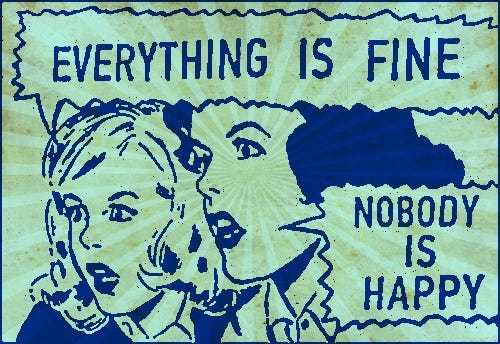

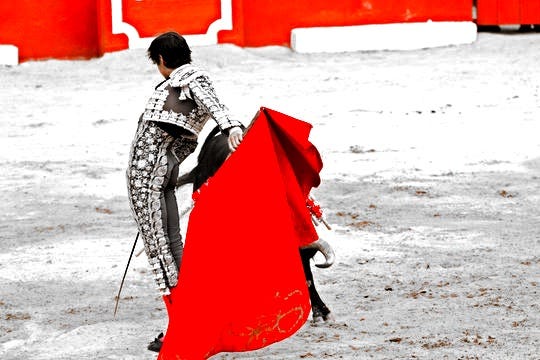

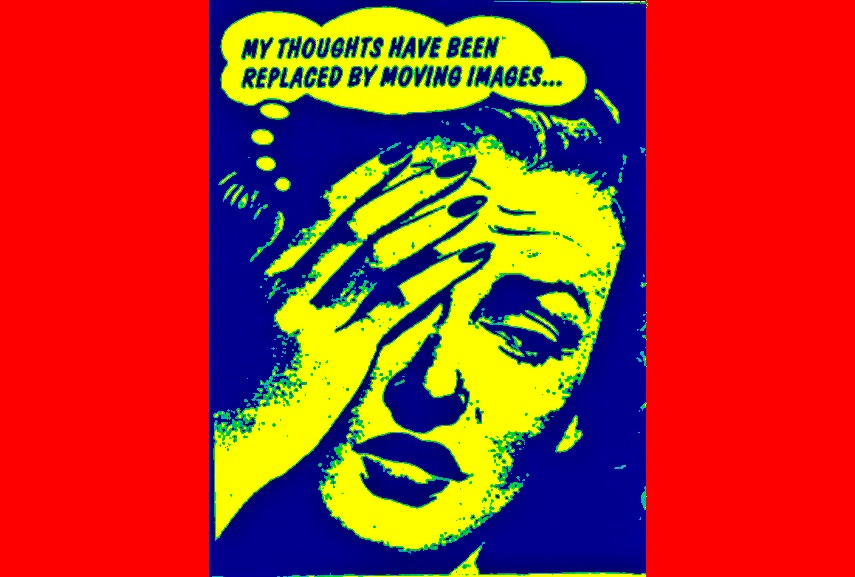
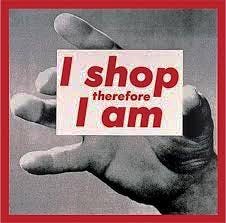
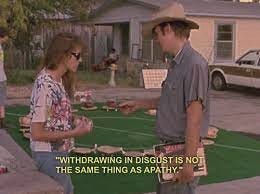
Reading this for the second time, I'm getting a lot more out of it. The big thing is escaping the spectacle. And if you can make that effort, then human connections become more meaningful.
How am I just discovering your body of work now? Wow this piece speaks across time and
gives me much comfort in our collective individual potential to create new realities outside of “consensus reality”. Thank you and looking forward to reading more!✨🙏🏼✨